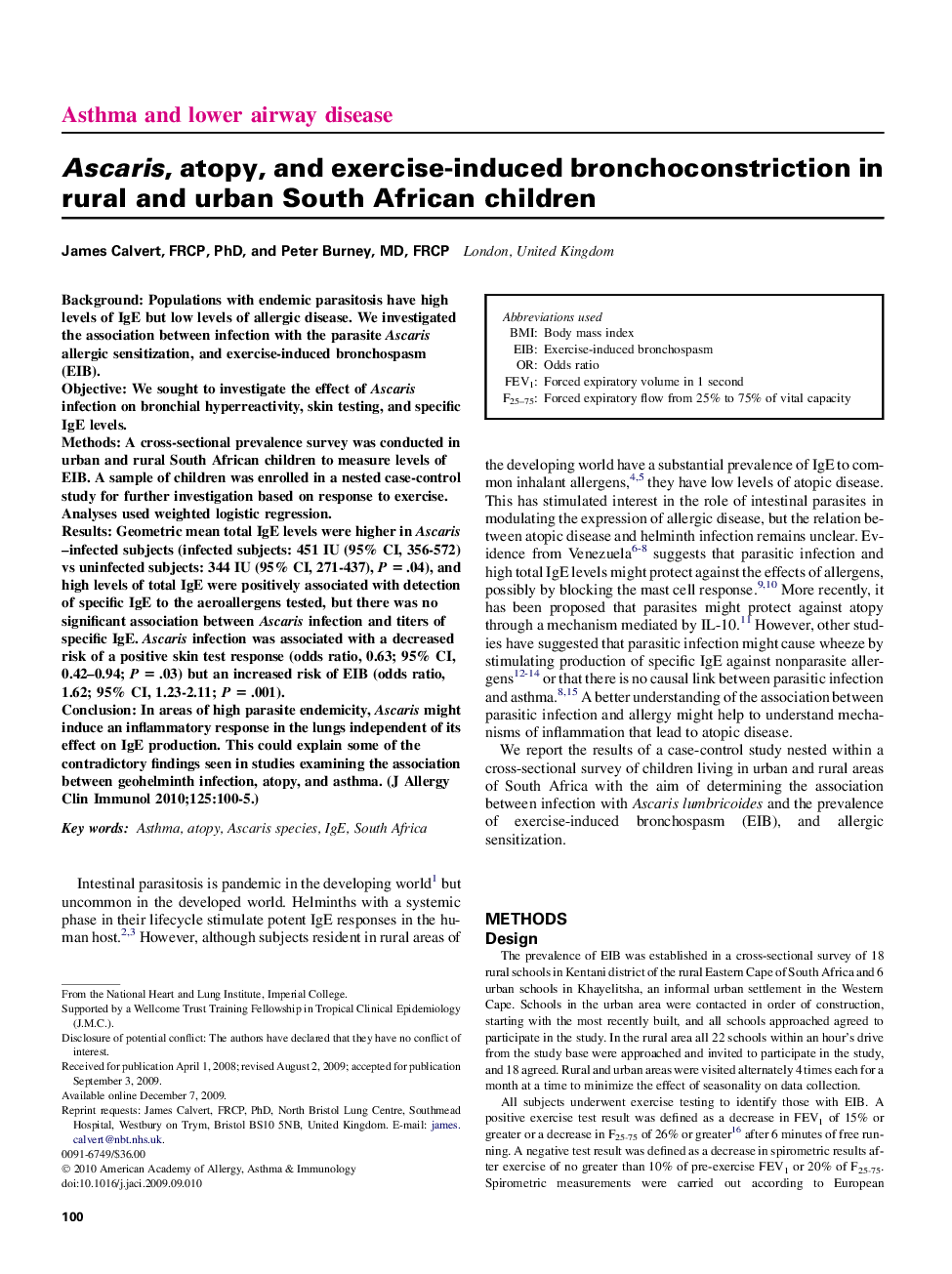| Article ID | Journal | Published Year | Pages | File Type |
|---|---|---|---|---|
| 6067537 | Journal of Allergy and Clinical Immunology | 2010 | 11 Pages |
BackgroundPopulations with endemic parasitosis have high levels of IgE but low levels of allergic disease. We investigated the association between infection with the parasite Ascaris allergic sensitization, and exercise-induced bronchospasm (EIB).ObjectiveWe sought to investigate the effect of Ascaris infection on bronchial hyperreactivity, skin testing, and specific IgE levels.MethodsA cross-sectional prevalence survey was conducted in urban and rural South African children to measure levels of EIB. A sample of children was enrolled in a nested case-control study for further investigation based on response to exercise. Analyses used weighted logistic regression.ResultsGeometric mean total IgE levels were higher in Ascaris -infected subjects (infected subjects: 451 IU (95% CI, 356-572) vs uninfected subjects: 344 IU (95% CI, 271-437), PÂ =Â .04), and high levels of total IgE were positively associated with detection of specific IgE to the aeroallergens tested, but there was no significant association between Ascaris infection and titers of specific IgE. Ascaris infection was associated with a decreased risk of a positive skin test response (odds ratio, 0.63; 95% CI, 0.42-0.94; P = .03) but an increased risk of EIB (odds ratio, 1.62; 95% CI, 1.23-2.11; P = .001).ConclusionIn areas of high parasite endemicity, Ascaris might induce an inflammatory response in the lungs independent of its effect on IgE production. This could explain some of the contradictory findings seen in studies examining the association between geohelminth infection, atopy, and asthma.
